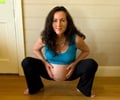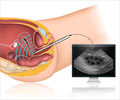Babies born naturally get beneficial bacteria passed on from their mothers that stimulate the immune responses, whereas babies born through cesarean section lack these bacterial responses.

‘Specific bacterial substances that stimulate the immune system are present in babies born naturally, whereas these bacterial triggers are much lower in cesarean born infants.’





This bacterial colonizer-immune system link - together with other factors - could explain why cesarean section babies are statistically more prone to develop allergies, chronic inflammatory diseases and metabolic diseases. "It could be that the immune system of these children is set on a different path early on," suggests Paul Wilmes. "We now want to further investigate this link mechanistically and find ways by which we might replace the lacking maternal bacterial strains in cesarean-born babies, e.g. by administering probiotics." "Of course, it is already clear that we should not intervene too strongly in the birth process. Babies should only be delivered by cesarean section when it is medically necessary", Paul Wilmes stresses. "We need to be aware that, in doing so, we are apparently intervening massively in the natural interactions between humans and bacteria."
Source-Eurekalert










